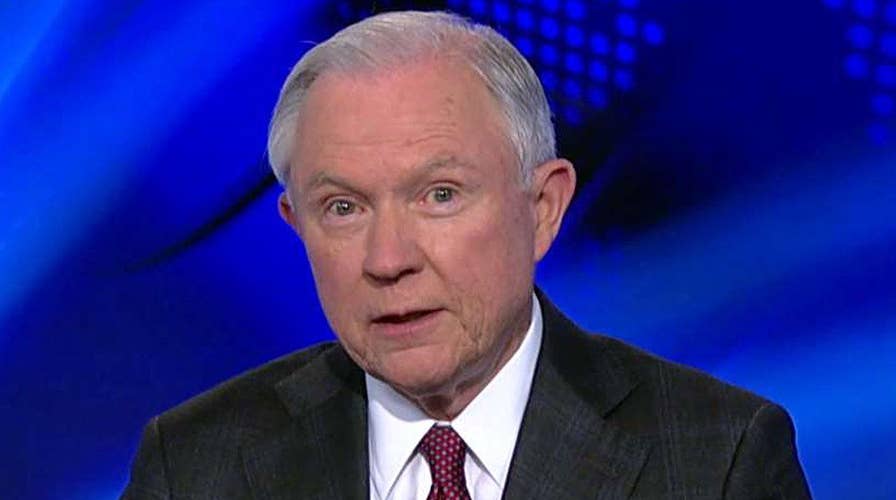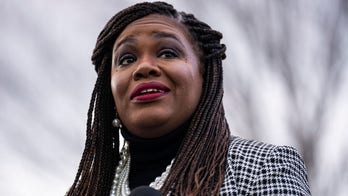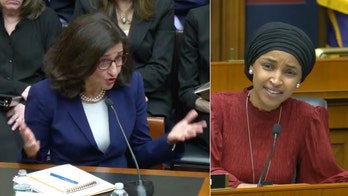AG Sessions: I needed to clear air in Russian probe
Exclusive: Attorney general tells Tucker why he decided to recuse himself from all probes on Russia's activities during the 2016 election, saying he did not an improper discussion with Russian ambassador #Tucker
Attorney General Jeff Sessions told Fox News' "Tucker Carlson Tonight" in an exclusive interview Thursday that conversations between him and the Russian ambassador to the U.S. had been "hyped beyond reason" by the media and criticism of them was "unfair."
"I don’t believe anybody that was in that meeting would have seen or believed I said one thing that was improper or unwise," Sessions told host Tucker Carlson. "It was really a sad thing to be attacked like that, but I think we’ve explained it and we intend to move forward."
Sessions spoke to Fox News hours after he recused himself from “any existing or future investigations” regarding the 2016 presidential campaign. Lawmakers from both parties had pressed Sessions to step away from an ongoing probe into Moscow meddling during last year's race for the White House.
Sessions has repeatedly denied meeting with Russian officials or operatives while a surrogate for then-candidate Donald Trump's campaign. He testified during his confirmation hearing in January that he had no “communications” with Russia during the campaign, an answer he later said was "honest and correct."
However, Sessions also said Thursday that he would submit a supplement to the record of his hearing that would cover his conversations with Russian envoy Sergey Kislyak
The attorney general told Carlson that he had intended to announce he was recusing himself from any investigation of the Trump campaign's connections with Russian figures even before the Washington Post revealed his meetings with Kislyak Wednesday night.
"I believe I should recuse myself," Sessions said, "because I was involved in the campaign to a degree [that] I think [it] would have been perceived that I wouldn’t be objective[ly] participating in an investigation that might involve the campaign."
Sessions added that his recusal was "not an admission of any wrongdoing" and said that he had acted "exactly correctly" in the matter.
In the interview, Sessions detailed his two encounters last year with Kislyak, one of which happened during the Republican Convention in Cleveland this past July.
"I spoke at the Republican convention at a conference with some 50 ambassadors," Sessions recalled. "After I spoke, I walked down from the podium and mingled with a number of people and we met at that occasion and had a chat, and I left shortly thereafter."
Sessions said the other, more involved discussion with Kislyak took place Sept. 8 in his office and was one of several meetings he took with foreign ambassadors as a senior member of the Senate Armed Services Committee.
"We talked about a number of issues. One of them was the Ukraine and we had a disagreement over that," the attorney general said. "The Ukrainian ambassador had been into my office for a meeting the day before, and so we had a little disagreement over the Ukrainian issue. So we had a number of discussions like that."
Sessions said the meeting with Kislyak in his office was witnessed by two of his senior staffers, whom he described as "non-political."
"I don’t believe there’s anything wrong with a United States senator meeting with an ambassador from Russia," he said. "I learned something perhaps in that meeting – I usually did – and so that’s what happened. Ambassadors were coming by to see me pretty often."
Several top Democrats, for whom the revelations of any Russia discussions only served to fuel long-running accusations that Trump-tied officials have sought to conceal past contacts with Moscow, have called for Sessions' resignation, including the leaders in both the House and Senate. House Minority Leader Nancy Pelosi, D-Calif., went so far as to say Sessions had “lied” to Congress and committed perjury.
Many Republicans jumped to Sessions’ defense, saying Democrats were engaged in political theater and describing Sessions’ meetings as routine.
President Trump defended Sessions as an "honest man" in a statement released late Thursday.
"He did not say anything wrong," Trump said. "He could have stated his response more accurately, but it was clearly not intentional. This whole narrative is a way of saving face for Democrats losing an election that everyone thought they were supposed to win."





